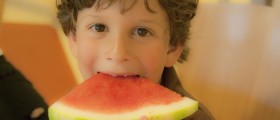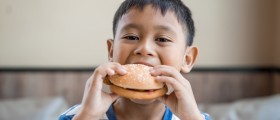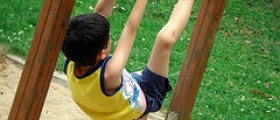
Childhood is the period of growth and development and many habits and lifestyles adopted during that time are crucial in defining the way in which the entire body will function in adulthood. Because they are in such a phase, children need all of the essential nutrients, some of them in amounts larger than those needed by adults.
Considering the increased number of childhood diseases as well as ever growing problem of childhood obesity, it is important for parents to learn about healthy dietary and lifestyle choices for their children.
Healthy diet for children
For children, just like for everybody else, breakfast is the most important meal of the day. Eating breakfast every day is a healthy habit that should be adopted early on and parents should never allow their children to skip it, even if they are late for school or have other reasons for not eating breakfast.
Breakfast should consist of cereals, preferably wholegrain, fruit and milk. This kind of breakfast assures adequate energy needed for the daily activities and also provides many vital nutrients, such as iron, calcium and fiber.
Children love snacks and cutting down on them often turns out to be a difficult task. Because of that, parents should switch to healthier snacks, avoiding candy, chocolate bars and chips and insist on granola bars, fruit and sliced vegetables.
In general, a healthy diet for children should be centered on grains, in form of bread, pasta and cereals, legumes, such as beans and chickpeas, fresh vegetables in form of salads, and plenty of fruit.
Meats should be lean and prepared with just a little vegetable oil, fish should be served at least three times a week, and milk and dairy products should be part of almost every meal.
Exercise for children
Most children do not need a strict or carefully planned exercise regime. They should instead be encouraged to participate in sports, especially in school, such as basketball, soccer or softball. They should also spend more time outdoors, playing with other children, riding bicycles, roller skating or swimming. Simple children’s games, such as hide-and-seek, usually provide enough exercise for the child.
Parents should also make sure the school their child attends implements a carefully designed activity plan for children, involving sports or collective physical activity, at least three times a week. Many children, especially if they are smaller than other kids or if they are overweight, hate gym class. In that case parents should get involved with teachers and counselors and find out ways to overcome this problem.

















Your thoughts on this
Loading...